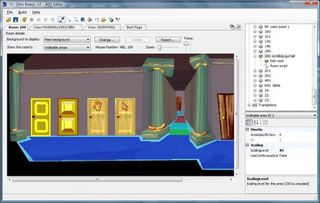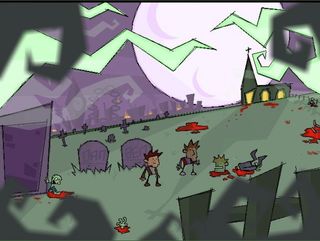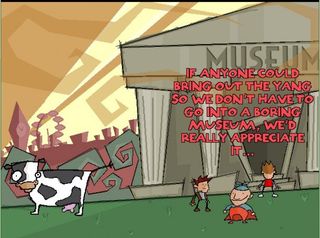The indies' guide to game making

Adventure Game Studio
What is it? An all-inclusive development suite for making 2D adventure games.
Price and licence: Free, you can sell your work, no royalties.
Makes games for: PC
Link: http://www.adventuregamestudio.co.uk
Tutorial: Official AGS tutorial

Case Study: Ben There Dan That
Developer: Dan Marshall
Get it: from Steam
The biggest gaming news, reviews and hardware deals
Keep up to date with the most important stories and the best deals, as picked by the PC Gamer team.
How long does Adventure Game Studio take to learn?
AGS is really good, in that it abstracts quite a lot of the complicated stuff for you and all just works. So you don't have to think about pathfinding, or setting up text stuff. You can pretty much make the bare bones of something simple in a weekend with a lot of perseverance and very little programming knowledge, because it's largely just filling in forms and ticking checkboxes.
If you want to do anything exciting or interesting with the game though, you're going to have to learn some C. Nothing too complicated, but it's all still programming and it'll take some getting used to.
What prior knowledge or skills are helpful?
You really need to understand the basics of C programming to get anything out of it. While the bulk is done for you, like rooms and characters, you still need to be able to tell them what to do and where to go. You can get by with very little knowledge of that, I expect, but you need to understand the syntax and basics like variables and if/else statements.
What can't you do with it?
Lots, I'm afraid. AGS is great for making faux-1990s point and click games, but nothing else. If you want to even very basic visual effects like fading in-and-out, or zooming the camera, you're going to have a rough time.
It's also Windows only, so no iPad or Linux versions.
AGS is also kind of getting on a bit, now. You could probably make an AGS-equivalent in Unity in about a week, and get all the multi-platform benefits and visual boost with it.

How long did you think the game would take to make, and how long did it actually take?
I think it probably took about as long as I'd expected it would, a couple of months. But then, Ben There, Dan That! has a deliberately... uh, slapdash style.
How much of the development time was enjoyable, and how much was unpleasant?
Ben There, Dan That! was pretty much a laugh from start to finish, largely because I wasn't taking it seriously. 99% of the game design was done down the pub, and the vast majority of the rest of it was done over lazy weekends. It's a funny, stupid game. I think maybe the only unpleasant bit was writing all the dialogue - there's a unique reaction for most things in the game, and so sitting there churning out dialogue did start to become something of a chore.
How much did it cost you to develop, and what did that money go on?
Uh... I don't think I spent anything on BTDT. I can't really remember. The budget is so close to zero that for all intents and purposes it is zero.
How well has it done for you financially, on a scale from 1-10?
Ooh, tricky. On its own, probably a 3 or 4. BTDT was originally free (what was I thinking?) but it's now Pay What You Want, or available as a Double Pack with the sequel on Steam. I kind of see the two as a constant pair, now. From that point of view, definitely a 9. I could always use more money.
If you could give your past self one piece of advice before starting to make the game, what would it be?
HEY! IDIOT DAN FROM THE PAST. Make the graphics nice!
Ben insisted that the graphics should be deliberately awful, and I went along with it. It was a sound idea, technically, it gives the whole thing a rogueish South Park charm. In reality, I think all it does is turn people off who take one look at the screenshots and move on.
Conclusion
Adventure Game Studio is perfect if the cool thing about the game in your head is its story, characters or humour. If you want to make all-new game mechanics, you're better off with Game Maker. But if you're a writer or artist and you want to tell a story with as little coding work as possible, this is where to start.
Contents
Most Popular



